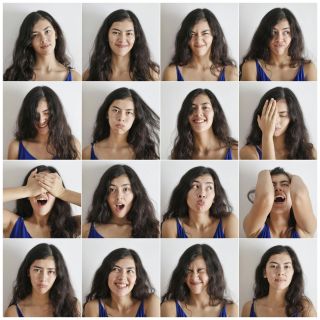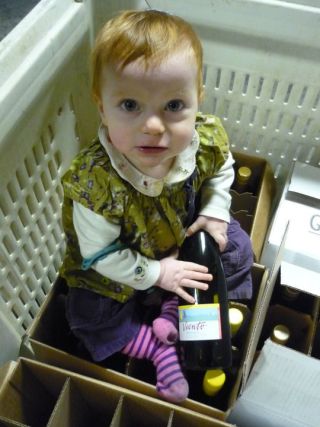Identity
Our Versatile Self
How we unify different experiences of the self.
Updated May 2, 2024 Reviewed by Jessica Schrader
Key points
- Our experience of a unified self results from the combination of different selves.
- Our self is dynamic because we are continually rebalancing different categories of self-knowledge.
- Reshaping and reinterpreting specific areas of self-knowledge can elevate our entire self.
“I’m no Einstein.” –Einstein
Most of us hold the necessary belief in a unified self, while also knowing that we experience different versions of this self.

Sometimes we feel our different selves very directly—with an abrupt change in mood or amidst a lively celebration or during a heated exchange. After an argument, we might say, “I don’t know what got into me, I wasn't myself.” After a difficult night, our morning self may wonder what our nighttime self was thinking.
As we move through our daily lives, our self changes because we are continually rebalancing different categories of self-knowledge. Knowing these categories allows us to better understand how we create and accommodate our different selves.
Six Categories of Self-Knowledge
1. Our physical self comprises our bodily capabilities: how we experience our bodily actions, functions, and shape.
Changes in our physical self are typically constant and slow, except at particular times when they become categorically different. We all go through accelerated change in our physical self during adolescence, which then agitates other areas of self-knowledge. We also experience noticeable change in our physical self during athletic training, physical therapy, illness, and injury.
2. Our ecological self locates us in the world, placing our physical self in relation to the environment. We feel our ecological self when moving through the world and detecting the flow of information entering our perceptual systems—primarily vision, hearing, and touch.
The ecological self extends beyond our skin to the things that move with us and that we directly control, such as our clothing, a bike we're riding, or a car we're driving. If a person touches our shirt, that person touches us.
3. Our interpersonal self is our self in relation to other people. When interacting, we align our selves with other people, becoming different versions of our self with different people.

We develop our interpersonal self between the ages of two and four as we develop a theory of mind, attributing independent mental and emotional states to other people.
The philosopher Martin Buber identified two kinds of relationships that influence the interpersonal self: the “I-Thou” relationship, in which we treat others as fully human beings, and the “I-It” relationship, in which we experience other people in terms of what they can do for us.
4. Our remembering self is the collection of personal memories that define us, beginning around age 3 and continuing until the present. These defining memories of events in our lives consist of vivid images, emotional experiences, memory directives, and the feeling of having lived through the remembered events.
Our remembering self provides continuity across the years, despite changes in other self-knowledge. We are the same person we were 10 years ago because we carry with us the same early and defining memories.

5. The private self consists of our streams of thought, often in the form of an internal dialog heard in our inner voice.
Between the ages of 2 and 3, we realize that our thoughts are exclusively our own, and that our parents and siblings don’t know what we’re thinking. This awareness then begins our knowledge of the private self—and our use of secrets and lies.
6. Our conceptual self is made up of concepts that specify our traits and our roles. For example, the conceptual self may include the concepts of athletic, considerate, humorous, stubborn, teacher, married, outgoing physically fit, sister, intelligent, religious—among other qualities and roles.
It’s the conceptual self that organizes our unified self by overlaying its conceptual structure on the other categories of self-knowledge.
How Categories of Self-Knowledge Interact
We can account for changes in our present self by considering the interactions among our categories of self-knowledge. Here is a sampling of such interactions, from the everyday to the consequential.
Driving brings out a distinctive ecological self by moving us through the world much faster than we’ve evolved to move and by shielding us from natural interactions with people in other cars. These ecological changes can then transform our interpersonal self, making it more likely to develop I-It relationships with other drivers instead of I-Thou relationships. We might abruptly cut in front of someone on the highway, even though we’d never do that while walking on the sidewalk.
With a romantic breakup, we experience a rupture in our interpersonal self, which can alter our private self (with thoughts of anger and self-blame) and our conceptual self (by adding the concepts of unlovable and lonely).
With injury or illness, we are no longer the physical self we once were, a change that can unsettle our interpersonal, private, and conceptual selves.
For those of us who emphasize the concept of being a private person, it may be especially intrusive when asked, “What are you thinking?” Our concept of being private makes us vigilant about not revealing our private self in social situations.
A hungry physical self can redirect our thoughts, interfere with our personal interactions, and diminish self concepts we typically emphasize.
In the serious case of functional movement disorders, harmful interactions among our ecological, private, and conceptual selves can hinder our physical self, creating a complex system of feedback that’s difficult to reverse. Reciprocal influences among these different categories of self-knowledge then maintain and reinforce the functional movement disorder.
Supporting Our Selves
Changing individual categories of self-knowledge can benefit our overall unified self.
Cognitive therapy reshapes our unified self by focusing on the private self, transforming patterns of thought from self-defeating to supportive and self-sustaining.
If we’re feeling discouraged about our present life, the remembering self can promote narrative repair by providing more favorable personal memories for our life story.
Diet and exercise transform the physical self, revitalizing the entire self.
Choosing supportive people to socialize with allows our interpersonal self to elevate our general well-being.
.jpg?itok=q2Zq05cS)
Most broadly, transforming our conceptual self can renovate our unified self. With a serious injury, we can reconceptualize ourselves as healthy, but with limitations that our resilience will accommodate and learn from. If we lose our job, we can redefine our professional concepts to consider a different job and possibly a different lifestyle.
After breaking up from a loving relationship, we can give up the self-concept that binds us into a couple and take on a definition of single and open to new relationships. We can also de-emphasize the importance of being professionally productive and allow ourselves time to grieve.
In general, we can maintain concepts that support us, de-emphasize or eliminate those concepts that no longer seem appropriate, and add new concepts.
References
This blog post draws from Neisser, U. (1988). Five Kinds of Self-Knowledge. Philosophical Psychology, 1(1), 35-59.




